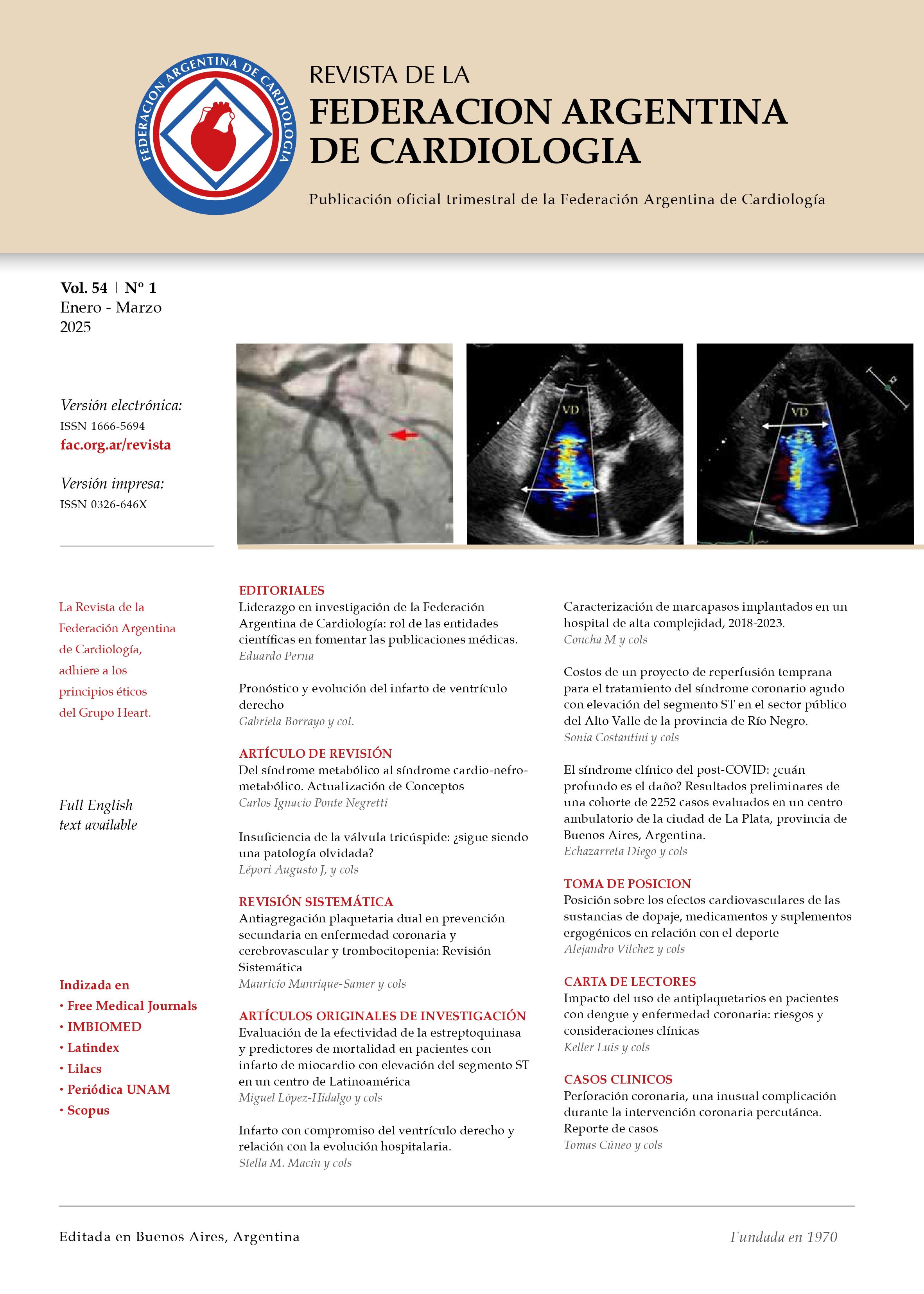Assessment of streptokinase effectiveness and mortality predictors in patients with ST-segment elevation myocardial infarction in a Latin-American center
Keywords:
Acute myocardial infarction, Thrombolysis, StreptokinaseAbstract
Introduction: thrombolysis reduces mortality and improves patient’s outcomes with ST-elevation myocardial infarction (STEMI). Objectives: assess clinical outcomes in STEMI patients treated with streptokinase (STK), and risk factors predictors of mortality. Methods: observational, cohort study, with a follow-up for 1 month. We assessed 177 STEMI patients, divided into 2 groups, those that received STK (49%) and those that didn’t: No STK (51%), who were admitted at Ciudad Hospitalaria “Dr. Enrique Tejera”, from April to August 2022. Results: the mean age was 63 ±10 years, there were 67% males and 79% had hypertension. Successful reperfusion was 41%, mortality in patients with Reperfusion vs No reperfusion was 6.7% vs 93.3 (p=0.001). Groups STK vs No STK at 1 month had heart failure hospitalizations of 25.9% vs 74.1% (p=0.004). Risks factors predictors of mortality at 1 month were hypertension with HR: 10.23 (p=0.002), female sex HR: 3.57 (p=0,001), family history HR: 2.28 (p=0.021) and diabetes HR: 2.02 (p=0.04). The mean age, and the KK, GRACE and TIMI score values were higher in patients that died. Conclusions: reperfusion with STK was low. Patients with successful myocardial reperfusion had significantly lower mortality. Risk factors predictors of mortality were hypertension, female sex, family history, diabetes, age and KK, GRACE and TIMI scores.



